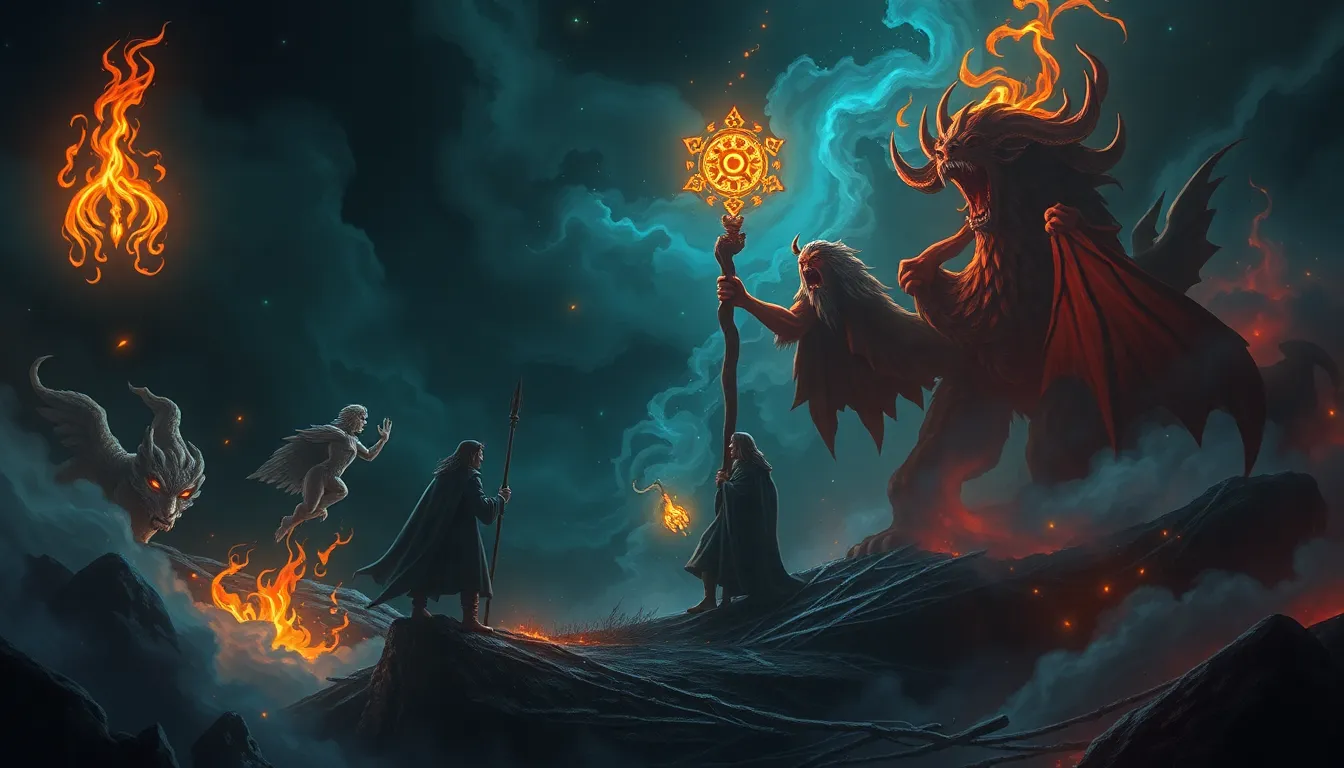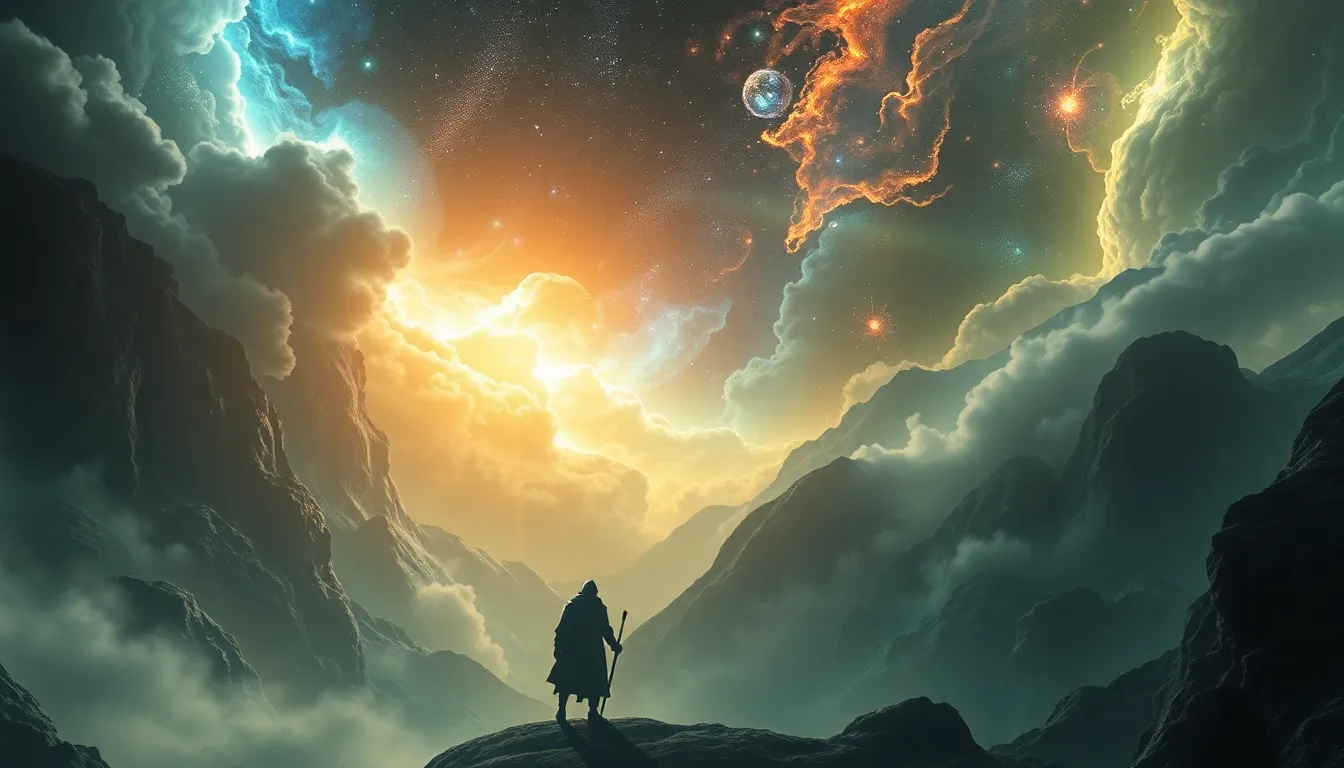The Golden Key: Unlocking the Secrets of Mythology
I. Introduction to Mythology
Mythology is a collection of myths, which are traditional stories that explain natural or social phenomena, often involving supernatural beings or events. It holds immense significance in understanding the beliefs, customs, and cultural heritage of societies throughout history. Myths serve not only as entertainment but also as moral guides, offering insights into human nature and the mysteries of existence.
Different mythological traditions have emerged worldwide, with some of the most notable being Greek, Roman, Norse, Egyptian, and Hindu mythologies. Each tradition has its unique tales, characters, and themes, yet they often share common elements that reflect universal human experiences.
The role of mythology in human culture and history is profound, as it shapes our perceptions of reality, influences art and literature, and provides frameworks for understanding the world around us. Through mythology, we can explore humanity’s deepest fears, desires, and aspirations.
II. The Concept of the “Golden Key”
The metaphorical “golden key” represents the essential insights and truths that mythology can unlock about human existence. This concept emphasizes how myths serve as tools for understanding the complexities of human nature and society. They offer a lens through which we can examine our beliefs, values, and behaviors.
Mythology allows us to search for universal truths that transcend cultural boundaries. Despite the diverse narratives found in various traditions, certain themes recur, highlighting shared human experiences. The golden key, therefore, symbolizes our quest for knowledge and understanding through the stories we tell.
III. The Origins of Mythological Stories
The origins of mythological stories are deeply rooted in historical contexts. Myths often emerge as societies attempt to explain their surroundings, origins, and the forces that govern their lives. They reflect the values and norms of the cultures from which they arise.
Oral traditions play a crucial role in the development of myths. Before the advent of writing, stories were passed down orally, evolving with each retelling. This dynamic process allowed myths to adapt to changing societal contexts while retaining their essential themes.
Additionally, the role of culture and environment is significant in shaping myths. For example, the harsh conditions of the Arctic have influenced Inuit mythology, whereas the fertile lands of the Nile have shaped Egyptian myths. Through these narratives, cultures articulate their relationship with nature and the divine.
IV. Archetypes and Symbols in Mythology
Mythology is rich with archetypes—universal symbols and themes that resonate across cultures. Some common archetypes include:
- The Hero: Represents courage and the quest for self-discovery.
- The Trickster: Embodies chaos and change, often challenging the status quo.
- The Mother: Symbolizes nurturing and fertility.
The significance of symbols in mythology cannot be overstated. Symbols convey complex ideas and emotions, allowing for deeper interpretations of myths. For instance, the serpent often represents rebirth and transformation, while the tree of life signifies interconnectedness.
These archetypes and symbols provide valuable insights into human psychology, revealing our collective fears, desires, and motivations. They serve as mirrors reflecting our innermost selves and the societal constructs we navigate.
V. Mythology and Religion: A Complex Relationship
Mythology and organized religion share a complex relationship characterized by both differences and overlaps. While mythology often encompasses a broader range of stories and characters, organized religion typically focuses on a specific set of beliefs and practices.
The impact of mythology on ancient religious practices is evident in many cultures. For example, the Greek pantheon of gods and goddesses influenced various rituals and ceremonies in ancient Greece. Moreover, many myths have become foundational to modern religions, such as:
- The creation myths found in the Book of Genesis in Judeo-Christian traditions.
- The resurrection of Osiris in Egyptian mythology, which parallels concepts of resurrection in Christianity.
VI. The Influence of Mythology on Literature and Art
Mythological themes have experienced a resurgence in contemporary literature, with authors drawing inspiration from ancient tales to explore modern issues. Works like Madeline Miller’s “Circe” and Neil Gaiman’s “Norse Mythology” showcase how ancient stories can be reinterpreted to resonate with today’s readers.
Artistic interpretations of mythological stories are prevalent across various mediums, including painting, sculpture, and theater. Artists such as Botticelli and Michelangelo drew heavily from mythology, capturing the essence of these tales in their works.
Some influential works inspired by mythology include:
- “The Iliad” and “The Odyssey” by Homer: Epic poems that explore heroism, fate, and the human condition.
- “Metamorphoses” by Ovid: A narrative poem that weaves together various mythological stories of transformation.
VII. Mythology in Modern Popular Culture
Mythology has found a prominent place in modern popular culture, influencing film, television, and various forms of entertainment. The Marvel Cinematic Universe, for example, incorporates Norse mythology through characters like Thor and Loki, bringing these ancient tales to contemporary audiences.
Video games also incorporate mythological themes, allowing players to engage with these stories interactively. Titles like “God of War” and “Assassin’s Creed: Odyssey” immerse players in mythological worlds, blending history with fiction.
The impact of mythology on contemporary storytelling and world-building is significant, as creators draw from these rich traditions to craft compelling narratives that resonate with audiences.
VIII. Psychological Perspectives on Mythology
Carl Jung’s theory of the collective unconscious emphasizes the significance of archetypes in mythology. According to Jung, these archetypes reside in our unconscious and manifest through myths, dreams, and art, reflecting shared human experiences.
Mythology also finds therapeutic use in psychology. Therapists may use mythological stories to help individuals explore their identities, confront fears, and understand their life narratives. By engaging with these timeless tales, people can gain insights into their personal struggles and societal roles.
IX. The Relevance of Mythology Today
Myths continue to address modern existential questions, providing frameworks for understanding our place in the world. They offer perspectives on morality, identity, and the human experience, fostering cultural understanding and unity among diverse populations.
Moreover, myths serve as a means of exploring contemporary issues, such as:
- Identity: Myths can help individuals understand their cultural roots and personal narratives.
- Morality: They often present moral dilemmas and ethical questions that remain relevant today.
X. Conclusion: The Everlasting Power of Mythology
The enduring power of mythology lies in its ability to connect us to our past while providing insights into our present and future. Myths serve as a golden key, unlocking the secrets of human nature and society, revealing universal truths that transcend time and culture. As we continue to explore these ancient stories, we find reflections of ourselves and the world around us, ensuring that mythology remains a vital part of the human experience.



